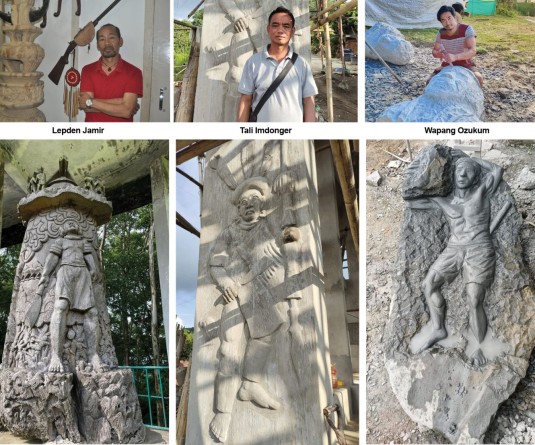Deputy Chief Minister, Y Patton.
Morung Express News
Dimapur | October 15
Deputy Chief Minister, Y Patton said that “tribalism and clanism” is destroying the Naga social fabric. Speaking at the main session of the Dimapur Lotha Students’ Union’s golden jubilee conference hosted at the Dimapur Government College Auditorium on October 15, Patton said that division or forming blocs based on tribe or clan has no place in the 21st century Naga society.
According to him, the purpose and intent of the clan system as followed by the forefathers is degenerating into a medium for leveraging electoral prospects and signs of which is visible even in students’ body elections and further up. In this regard, he appealed all sections, especially the Lotha community to not give space to elements propagating “clanism,” which only hampers growth and unity.
Patton further pointed out that Naga mother tongues have becoming endangered with the youths, today, conversing more in Nagamese than in their mother tongue. While appealing the students to comprehend the significance of conserving one’s language, he added, “Parents should also ensure that their children used mother tongue at home.”
The DLSU, he said, must always remember and uphold the vision of the founding members, who had the foresight to realise the significance of having a students’ body back then. Patton also released the jubilee souvenir at the programme and unveiled the jubilee monolith after it was dedicated by pastor Lotha Baptist Church Dimapur, Rev Zanao Mozhüi.
Former principal, Eastern Theological College, Jorhat, Rev Dr Ezamo Murry, spoke on the jubilee theme— “Envision radiant posterity.” He also emphasised the significance of using and preserving vernacular language.
Chairman Lotha Hoho Dimapur, YL Jami and Lotha Students’ Union Wokha, president, Ashanthung Humtsoe delivered jubilee greetings.
Meanwhile, MLA and Advisor, Information Technology, Science and Technology, New Renewable Energy, Mmhonlumo Kikon, addressed the valedictory session. Kikon said that to contribute to the society, an individual has to be familiar with one’s own history as knowing “our history supplements the wisdom and knowledge that we gain.” He added that without knowledge of history, one cannot make an impact in any conclusive discussions.
According to him, everybody should aspire to become informed individuals for the uplift of the community. While it is important to aspire to be special, he said, “But to project how special we are, we need to project our best behaviour, know our identity and represent our community.”




